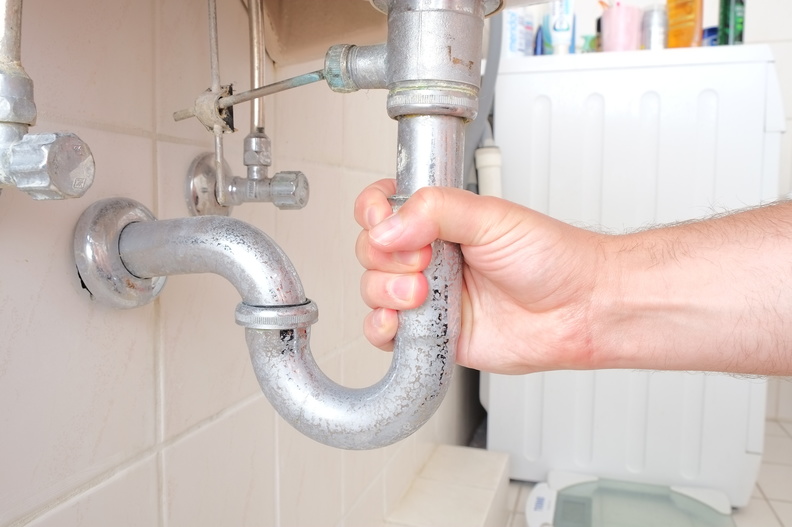Ways to Manage Urgent Plumbing Problems Before Expert Help Arrives
Ways to Manage Urgent Plumbing Problems Before Expert Help Arrives
Blog Article
In this article further down you can discover additional reliable content all about What to Do While Waiting for an Emergency Plumber.

Pipes emergency situations can strike at any moment, triggering stress and possible damages to your home. Whether it's a ruptured pipe, a clogged drainpipe, or a leaking tap, recognizing exactly how to manage the situation until a specialist plumbing professional gets here can conserve you from more issues. This write-up gives crucial emergency situation pipes ideas to help you reduce damages and gain back control throughout a pipes situation.
Switch off the Water Supply
The very first step in any plumbing emergency situation is to shut down the water. For local concerns, such as a dripping faucet or toilet, turn off the shutoff near the component. When it comes to a significant leakage or ruptured pipeline, situate your home's primary water shut-off valve and turn it off immediately. Knowing the location of these shutoffs ahead of time can conserve beneficial time throughout an emergency.
Address Small Leaks with Momentary Solutions
Tiny leakages can quickly become significant issues if left unattended. Use these short-term solutions until specialist aid gets here:
While these solutions aren't permanent, they can help reduce water loss and damage.
Unclog Drains Pipes Securely
A blocked drainpipe can be a frustrating and untidy concern. Here's how to tackle it:
If these approaches do not function, avoid using excessive force, as it may aggravate the obstruction.
Handle Overflowing Toilets
An overflowing bathroom can trigger prompt turmoil. Below's what you need to do:
Turn off Your Water Heater
In specific emergency situations, such as a ruptured pipeline, it's important to turn off your hot water heater. This stops getting too hot or damages to the device when water quits streaming. Switch off the power supply to the hot water heater (electrical or gas) and allow it cool off to stay clear of possible threats.
Momentarily Quit a Ruptured Pipeline
A ruptured pipe can result in substantial water damages in mins. To minimize the concern:
Call an expert plumbing professional promptly to deal with the problem completely.
Take Care Of Frozen Piping Very Carefully
In chillier climates, frozen pipelines are a typical emergency. If you presume a frozen pipeline:
Protect against Further Damage
Taking quick action to lessen damages can conserve you time and money over time. Right here's how:
. Have an Emergency Pipes Set
Prepare a basic pipes emergency kit to take care of minor issues properly. Your set should consist of:
Having these tools on hand can make a considerable difference in your capacity to handle emergency situations.
Know When to Call an Expert.
While quick fixes can help briefly, certain pipes issues call for immediate specialist attention. Call a plumber if:.
Immediately contacting an expert makes certain the issue is fixed properly and protects against more complications.
Conclusion.
Plumbing emergency situations can be frustrating, yet with the appropriate knowledge and tools, you can manage the circumstance successfully up until aid gets here. By switching off the water supply, addressing small leaks, and using short-lived repairs, you can lessen damages and maintain your home safe. Bear in mind, these pointers are short-lived remedies; constantly get in touch with a qualified plumbing technician to manage the source of the issue. Preparation and quick thinking are your best allies in any pipes emergency situation.
8 Helpful Tips for Managing Plumbing Emergencies at Home
If your plumbing system hasn’t failed once, wait for it because almost everyone has a story to tell. Sometimes, it could be simple emergencies such as a leaking pipe, a blocked cistern, or even a big burst pipe. In situations like this, you need to have some handy tips to save you some money and from possible damages.
Take care of minor issues early.
Sometimes, you could have avoided an emergency by taking proactive measures while it was still early. Some major plumbing emergencies can be a result of an ignored minor issue. We recommend that you have items like plumbing tapes and other related items. A plumbing tape can allow you to manage minor leaks before the plumber arrives.
Cut off the water supply.
This tip is essential in almost any type of leakage problem. For problems like minor leakages in the toilet or kitchen, turn off the supply that takes water to the affected pipes. If the leakage is a major pipe, you must shut off the supply valve to the entire building. This will help you avoid flooding your home and neighbors if you share a flat.
Know your plumbing system
Folks typically move into a new apartment without understanding the water supply around the building. This can prove disastrous if a water emergency arises and the plumber is far away. The previous tip will prove useless if you don’t practice this one. More importantly, know where your water shut-off valve is located – you’ll need that knowledge to prevent potential home floods.
Have some common handy tools
There are lots of plumbing emergencies that you can handle without hiring a plumber. That’s why you must keep some tools available always. Some tools that you can use to fix simple plumbing emergencies easily include plumbing tapes, screwdrivers, thread seal tapes, plungers, pliers, tape measures, and rubber gloves.
Insulate your pipes from cold
You’ll save yourself from many plumbing expenses if you protect your water pipes from the cold. This is because of the harmful effects that cold weather can have on your pipes. During winter, your pipes can burst from being overly expected to freezing temperatures. So, make sure insulators are there to keep the pipes working correctly.
Avoid practices that will clog your toilet.
Many people indulge in practices that can damage the plumbing system of the entire building. One of these is when they use their toilet to dispose-off garbage. They flush all kinds of things, such as paper towels, bandages, hairs, female sanitary products, etc., down the toilet. This will block your toilet in the long run, incurring unnecessary expenditures. Dump such waste in the trash instead.
Check your dials regularly.
Sometimes, there could be leakages in your home without noticing them in time. So, constantly monitor your water meter dial. If the dial is reading when there is nobody using water, this is an indicator that there is leaking. Check for leaks immediately. Call a plumber as soon as possible if you can’t find any.
https://www.constructionplacements.com/8-helpful-tips-for-managing-plumbing-emergencies-at-home/

Do you appreciate reading up on What to Do While Waiting for an Emergency Plumber? Make a short review directly below. We would be glad to know your opinions about this write-up. Hoping that you come back again in the future. I beg you take the opportunity to distribute this content if you appreciated it. Thanks so much for taking the time to read it.
Learn More Report this page